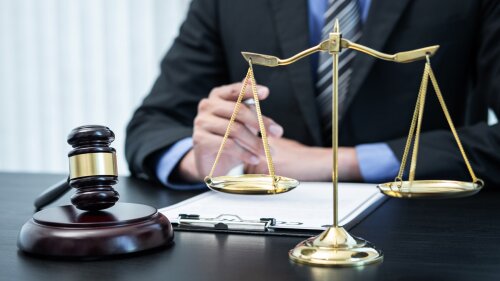Best Arrests & Searches Lawyers in Formia
Share your needs with us, get contacted by law firms.
Free. Takes 2 min.
List of the best lawyers in Formia, Italy
About Arrests & Searches Law in Formia, Italy
In Formia, Italy, the law regarding arrests and searches is governed by the Italian Constitution, the Criminal Procedure Code (Codice di Procedura Penale), and related statutes. These laws define how authorities can lawfully detain individuals, conduct searches, and seize property. Law enforcement agencies must respect basic rights and follow established procedures to ensure that the actions are legal. If these procedures are not properly followed, evidence or actions taken may be challenged in court. Understanding your rights when subjected to an arrest or search is crucial for protecting yourself legally in Formia.
Why You May Need a Lawyer
There are several reasons why someone in Formia might require the help of a lawyer in relation to arrests and searches. Common situations include being detained by police, having your property searched or seized, facing criminal investigation, or being asked to give statements or consent to a search. Lawyers ensure your rights are protected at each stage, advise you on what to say or do, challenge illegal evidence or procedures, and represent you before authorities or in court. Professional legal guidance is especially important if you are not familiar with Italian law or if you believe your rights have been violated.
Local Laws Overview
The legal framework for arrests and searches in Formia includes several key aspects:
- Police or judicial authorities must have a valid reason or "just cause" to arrest someone or search property.
- Most searches require a warrant signed by a judge, except in specific emergencies outlined by law.
- During an arrest, the person must be told the reasons for their detention and their rights, including the right to remain silent and to speak with a lawyer.
- Any improper arrest or search may result in the exclusion of evidence obtained and possible liability for the authorities involved.
- Individuals have the right to contact a lawyer immediately after an arrest, and in certain cases, the presence of a lawyer is mandatory during questioning.
- The Criminal Procedure Code outlines strict timelines for police to inform judicial authorities and for providing information about the reasons for arrest or search.
Frequently Asked Questions
What should I do if I am arrested in Formia?
Stay calm, ask the police for the reason for your arrest, and exercise your right to remain silent until your lawyer is present. Request contact with a lawyer as soon as possible.
Can the police search my home without a warrant?
Usually, police need a search warrant issued by a judge. In emergencies, such as imminent danger or pursuit of a suspect, searches may be conducted without a warrant, but the law requires strict justification for this.
What rights do I have during a police search?
You have the right to see the warrant if there is one, to be informed of the purpose of the search, and to have a lawyer present if possible. You can also request an inventory of items seized.
Can I refuse to answer questions from the police?
Yes, you have the right to remain silent and not incriminate yourself. It is usually best to wait for your lawyer before answering questions.
What should I do if I believe my rights have been violated during a search or arrest?
Document what happened as soon as possible, collect any evidence or witness testimonies, and contact a lawyer immediately. Your lawyer can help you challenge the legality of the actions in court.
How quickly must I be brought before a judge after being arrested?
Italian law requires that you be brought before a judge usually within 48 to 96 hours, depending on the circumstances and type of offense.
Are searches allowed on the street or in public places?
Police can stop and search individuals in public if they have reasonable suspicion or for security reasons, but they must respect your rights and explain the reason for the search.
Do I need to consent to a police search?
If the police have a valid warrant or there is a legal ground for a search, your consent is not required. However, if they do not, you can legally refuse.
Can evidence obtained illegally be used against me?
Generally, evidence obtained through illegal arrests or searches can be excluded from court proceedings. A lawyer can help you request the exclusion of such evidence.
What role does my lawyer play during an arrest or search?
Your lawyer ensures that procedures are followed correctly, advises you on how to protect your rights, and represents you in dealings with authorities or in court.
Additional Resources
If you need more information or help regarding arrests and searches in Formia, these resources can be useful:
- Police Station (Commissariato di Polizia) in Formia for official procedures and complaints.
- Court of Formia (Tribunale di Cassino - Sezione Distaccata di Formia) for matters involving judicial warrants and hearings.
- Public Defender’s Office (Ufficio del Difensore d’Ufficio) for state-appointed legal representation if you cannot afford a lawyer.
- Local Bar Association (Ordine degli Avvocati di Cassino) for finding qualified criminal defense lawyers in the area.
- Legal aid centers (Patrocinio a spese dello Stato) for free or low-cost legal support depending on your financial situation.
Next Steps
If you or someone you know is involved in an arrest or search situation in Formia:
- Remain calm and exercise your right to silence until you have spoken to a lawyer.
- Contact a local criminal defense lawyer immediately for advice and representation.
- Keep all relevant documents, warrants, and official notices for your lawyer’s review.
- If possible, write down details of the event, including names of officers and times.
- Do not sign any documents you do not understand or agree with until your lawyer has reviewed them.
- Ask your lawyer about legal recourse if you feel your rights were not respected during the process.
Lawzana helps you find the best lawyers and law firms in Formia through a curated and pre-screened list of qualified legal professionals. Our platform offers rankings and detailed profiles of attorneys and law firms, allowing you to compare based on practice areas, including Arrests & Searches, experience, and client feedback.
Each profile includes a description of the firm's areas of practice, client reviews, team members and partners, year of establishment, spoken languages, office locations, contact information, social media presence, and any published articles or resources. Most firms on our platform speak English and are experienced in both local and international legal matters.
Get a quote from top-rated law firms in Formia, Italy — quickly, securely, and without unnecessary hassle.
Disclaimer:
The information provided on this page is for general informational purposes only and does not constitute legal advice. While we strive to ensure the accuracy and relevance of the content, legal information may change over time, and interpretations of the law can vary. You should always consult with a qualified legal professional for advice specific to your situation.
We disclaim all liability for actions taken or not taken based on the content of this page. If you believe any information is incorrect or outdated, please contact us, and we will review and update it where appropriate.









